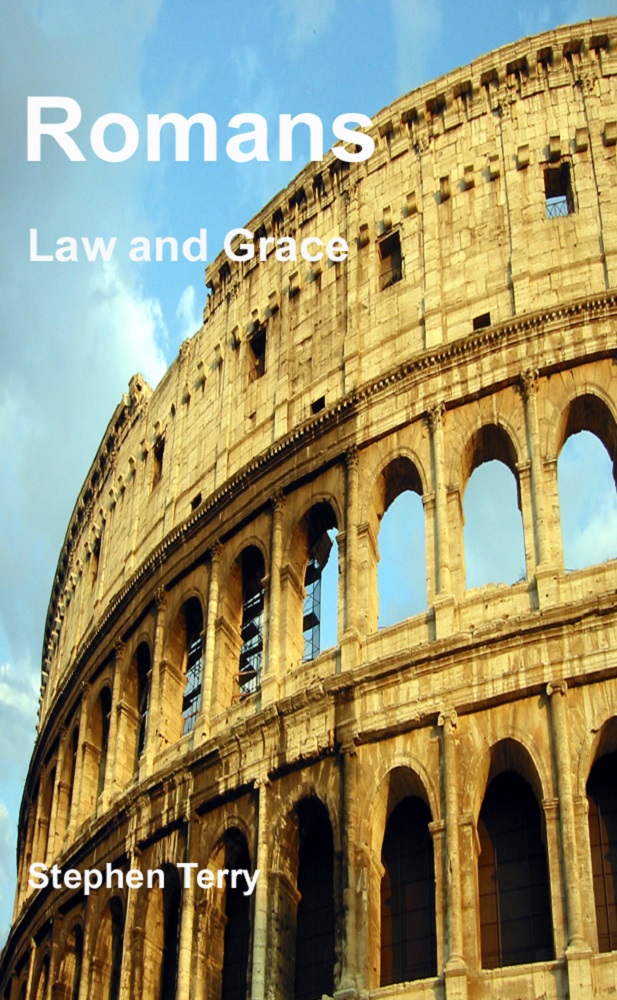Grieving
and Resisting the Spirit
Stephen
Terry
Commentary
for the March 18, 2017 Sabbath School Lesson
 “Do
not quench the Spirit.” 1 Thessalonians 5:19, NIV
“Do
not quench the Spirit.” 1 Thessalonians 5:19, NIV
One would think that based on Paul’s words here to the fellowship
meeting in Thessalonica, the church would be the last entity that would be
guilty of quenching the Sprit. Sadly that has not been the case through the
centuries. While the concept of what constitutes the church has changed over
the millennia, the basic understanding of institutional religion and how it
functions has not. Institutional religion often sees itself as somehow
controlling the granting of the Spirit. Whenever a revival incited by the Holy
Spirit begins to flare up, the church quickly rushes in to douse the flames by
making sure only those it has selected to be in charge are allowed to run
things. Those selected by the Holy Spirit rather than the church, especially
laity, are challenged and their motives questioned. They may even be accused of
syphoning off funds from the institutional church and subverting its authority.
Because of this the Old Testament prophets and even the Apostles in the New
Testament tended to be outliers from the church. Strangely, per the Bible, God
did not often call the priests of the temple to special ministry in either the Old
or New Testament period with a few exceptions such as John the Baptist’s father.[i]
More often than not, they were found warring against
those God had called. For example, Jeremiah, the Prophet, called of God and
empowered for prophetic ministry, was the son of Hilkiah the Priest in the city
of Anathoth, a city of priests. Nonetheless, the residents of that city not
only sought to stop his ministry, but to slay him as well.[ii] Fortunately, God intervened
to protect the life of His prophet. Perhaps because of the political power inherent
in a priesthood that presumed to tell even kings what they should do, that
office tended to attract the unscrupulous, and even to corrupt those who would
begin in office innocently enough but grow greedy and corrupt over time. The
corruption of Phinehas and Hophni, the two sons of Eli, was proverbial in the
Old Testament for wickedness.[iii] Had they not died in
battle, they might have been a major obstacle to the ministry of Samuel. Prior
to that time, God called whom He would to lead His people, and with that
calling He would provide the enabling for whatever task was to be accomplished.
This was the period of the judges, men and women of resoluteness who answered
God’s call and repeatedly delivered Israel from their troubles in spite of the
prevailing waywardness. Notably, even though Moses had been a great deliverer
and his brother, Aaron, had begun the priestly dynasty, God did not call the
descendants of these men to be judges. Apparently God was not as impressed by
office or lineage as He was by a heart willing to do His bidding. But like Moses
facing Korah, Dathan, and Abiram,[iv] these faithful men and
women rarely served without opposition.
While God most often called men to ministry, He did not
ignore the faithful and willing woman who could serve. Deborah is famous among the
judges, and others like Ruth and Esther had entire books of the Bible written
about their exploits. In an era dominated by patriarchy, this calling by God
might be seen as revolutionary. In the New Testament, it was not Zechariah,
John the Baptist’s father, who was said to have been filled with the Holy
Spirit, but his wife, Elizabeth.[v] Once again though, these
events were outliers from the central power and control of the institutional clergy.
Those clergy received their power and authority not from the will of God, but
by delegation from the kings and nobles of Israel. Whether it was Hananiah
opposing Jeremiah,[vi]
or Zedekiah opposing Micaiah,[vii] these priests sought
more to ingratiate their royal patrons than to seek out the true will of God.
Even Jesus was opposed by those who were seeking to follow this lust for power.
Because of a struggle for royal power, the Jews had compromised their own
people by asking for the Romans to intercede on behalf of the ultimately
victorious faction. In return for their help in establishing the throne, the
Romans came to stay and Palestine became fully integrated into the empire. In
order to maintain the inviolability of that relationship, the institutional
religious leaders were willing to sacrifice Jesus, even though he might possibly
be the Messiah, to die upon a cross at the hands of Romans. The high priest,
Caiaphas, sardonically stated that it was better for one man to die instead of
the entire nation.[viii]
Likely, he was afraid that Jesus’ challenge to the power and authority of the
priesthood would upset the delicate balance of power between the Jewish state
and the Roman occupation that had been so carefully crafted, resulting in great
loss of life and perhaps the collapse of the Jewish government. Little did he
know that ultimately in 70 CE and 132 CE, revolts would flare up that would
effectively destroy the temple, the priesthood and any remnants of civil
authority that might challenge Rome. Especially, in the later revolt, the followers
of Jesus, whom the priests of the temple and even the king had been so concerned
about, chose not to participate, creating a schism between the Jewish and Gentile
Christians that may lay at the root of much of the anti-Semitism that plagues
the Christian church even to the present day.[ix] During this period when
the power of the Aaronic priesthood was being swept aside, the Christian
movement grew and prospered, especially with the final destruction of Jewish
hegemony. Jews were ultimately barred from Jerusalem and only Gentile Christians
could carry on the work of the church in that city, newly renamed Aelia
Capitolina.[x]
The Christian church, not the institutional church we
are familiar with today, but the church composed of those who were called by
God (εκκλησια) and lived by the spirit
(πνευματικοι)[xi] thrived during the period
between Jesus ascension and the early 4th century when Constantine
made Christianity the state religion. Centers of faith rose in the various
major metropolitan locations about the empire. The bishops of those areas had
varying perspectives regarding the canonicity of the popularly referenced letters,
biographies and histories of Christ, the Apostles, and other early Christians
circulated among the believers. In part, because of these different canons, disputes
arose over which perspective should have ascendance. But the balance of power
between the cities prevented any one view from prevailing to the exclusion of
all others. When the Emperor placed the power of the state behind the faith
though, appeals began almost immediately to determine orthodoxy and to enforce
it with that power. Thus came about the genesis of the institutional church we
know today. Persecutions over heresy began almost immediately. The 1st
Council of Nicaea dealt with the followers of Arius and established canon law.
This was followed a few decades later by the Council of Laodicea which outlawed
the keeping of the Saturday Sabbath and the practice of ordaining women. These
actions strongly imply that both of these practices were common enough in the
early church that the clerics present for this council felt they must be
addressed. These decisions the church has sought to enforce for approximately
1700 years now. In the mid-19th century, the Seventh-day Adventist arose
and has presently become, with over 20 million members, the primary challenger
to this long tradition of suppressing Sabbath worship on Saturday as opposed to
Sunday. Often cited for support of the Adventist position is the statement made
by Peter that we should obey God rather than human beings.[xii] However, in spite of
this counsel, much of the modern church, including the Adventist Church still
struggles with the idea of returning to the practice of the early church of
ordaining women to ministry.
We seem to still have a hard time getting a handle on the
idea that the Holy Spirit calls and enables whom He will. Why a church
denomination largely founded by the woman, Ellen White, who was called to that role
after men previously called had turned it down, should find it so hard to allow
women to minister as they are called is a bit of a paradox. In spite of many
biblical and historical evidences to the contrary, modern Christianity still
persists in the Laodicean idea that God’s call is extended only to those with the
requisite genitalia as determined by a few dozen clerics in the late 4th
century. Perhaps it is time we found a way to bring harmony between the authoritarian
power structures of the institutional church and the infilling and enabling of
the Holy Spirit. It may be time to ignore the prejudices of institutionalism in
favor of the willingness of human hearts without regard to race, gender or age.
If we continue to “quench the Spirit,” we may eventually find ourselves
fighting against God, a battle we cannot win.
